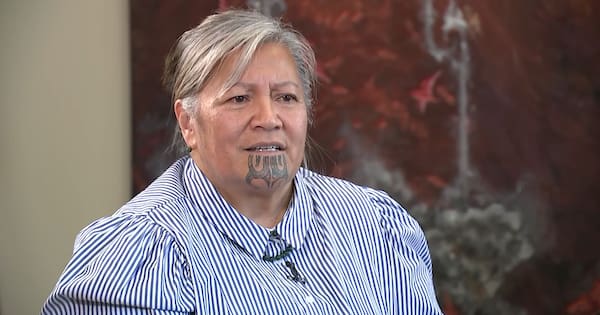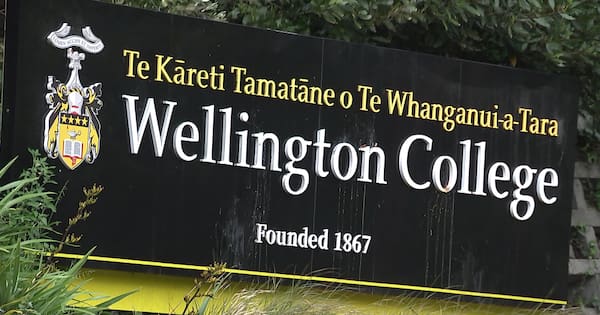Education Minister Erica Stanford has sidestepped questions over the Government’s $153 million charter schools programme, repeatedly deferring to ACT leader David Seymour in a Q+A interview.
The Charter School Agency confirmed this week it is currently considering just four formal applications for state school conversions into charter schools by Term 1 next year.
It falls short of the 35 conversions that were allocated funding for through to the end of 2026. Seymour, whose party has championed the policy, is associate education minister with responsibility for charter schools, but Stanford holds the overall education portfolio.
Speaking to Q+A, she repeatedly sidestepped questions on the issue, referring back to Seymour, who is also deputy prime minister.
When pressed about whether the millions spent to help establish schools and more than $140,000 average salaries at the Charter School Agency represented good value for money, she responded: “Those are questions for Minister Seymour.
“You should get him on the show and ask him that.”
Meanwhile, Associate Education Minister David Seymour told Q+A people are “testing the water”. (Source: 1News)
When countered that she was the Education Minister, Stanford said: “Well, I’ve got my hands full at the moment with massive transformational change, structured literacy, structured maths, new qualifications framework. You know, he’s responsible for that area.”
Stanford acknowledged the low conversion numbers “clearly” hadn’t matched figures previously spoken about in public, but deferred questions to the ACT minister.
The Education Minister then offered a novel explanation of why she didn’t want there to be more charter schools, describing the system for conversions as helping to create “tension” designed to hold state-run education to “account”.
“It is his area of responsibility. However, this is the tension in the system, right? You put something different in, and it’s supposed to make me go, ‘Actually, we need to up our game, ‘so we don’t have people leaving and wanting to convert to charter schools.’
The privately run and publicly funded academies were introduced by the coalition Government. (Source: 1News)
“I don’t want schools to leave and become charter schools. That’s why transformational change — a new qualifications framework, structured literacy, all of the resources and professional learning and development. And that’s the tension in the system,” she said.
Seymour’s party, ACT, has long advocated for charter schools to be part of the education system. It was a key priority for the party following the last general election, with the policy forming part of its coalition agreement with National.
At Budget 2024, the Government allocated $153 million in funding over four years to establish and operate up to 15 new charter schools and convert 35 state schools to charter schools by the end of next year.
While dozens of applications have been received for new charter schools, no state schools have converted so far.
Stanford said any unused funding from the charter school conversion programme would “no doubt” be repurposed into other parts of the education sector.
Panel didn’t have unanimity NCEA ditching – Stanford
Speaking to Q+A, Stanford said her professional advisory group on NCEA reforms had come to a “broad consensus” that the 20-year-old system should be scraped.
PM Christopher Luxon says evidence shows the current system is inconsistent and “can be hard to navigate”. (Source: 1News)
But the view wasn’t unanimous, the minister conceded. The group was made up of current and former principals with “deep knowledge of the sector.”
“From the start, they had a range of different views, but they worked really collaboratively … There was broad consensus. That’s where they came to in the end, and those are the decisions that they helped make,” the Education Minister said.
“They had a range of different perspectives coming in. There were some who wanted to keep level 1, for example. There were some who definitely wanted to scrap it. There were some who liked some of the aspects of NCEA.
Skills Group CEO Rosanne Graham and Universities New Zealand CEO Chris Whelan joined Breakfast to discuss what the NCEA overhaul may do for school leavers. (Source: 1News)
“Frankly, we just listened to them and came to a middle ground where we were like, ‘Look, there are some good things about NCEA, and we want to retain those, like the [vocational] pathways, like some of the flexibility, like internals and externals.
“So how do we take what you like and how do we create something that has those aspects, but also has the academic rigour that the rest of you are talking about?’ So it was very much a coming-together.”
For the full interview, watch the video above
Q+A with Jack Tame is made with the support of New Zealand On Air









